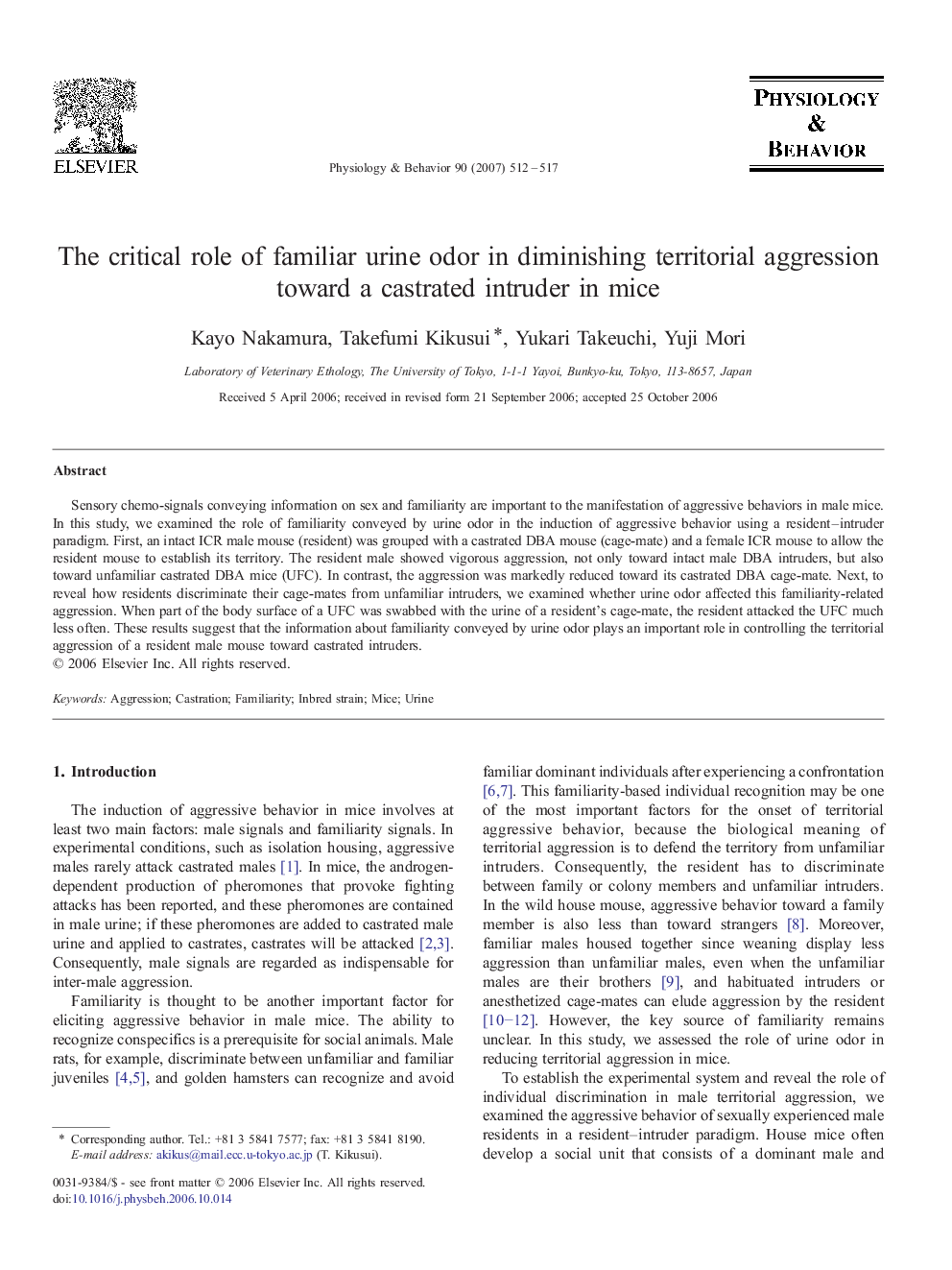| Article ID | Journal | Published Year | Pages | File Type |
|---|---|---|---|---|
| 2846217 | Physiology & Behavior | 2007 | 6 Pages |
Sensory chemo-signals conveying information on sex and familiarity are important to the manifestation of aggressive behaviors in male mice. In this study, we examined the role of familiarity conveyed by urine odor in the induction of aggressive behavior using a resident–intruder paradigm. First, an intact ICR male mouse (resident) was grouped with a castrated DBA mouse (cage-mate) and a female ICR mouse to allow the resident mouse to establish its territory. The resident male showed vigorous aggression, not only toward intact male DBA intruders, but also toward unfamiliar castrated DBA mice (UFC). In contrast, the aggression was markedly reduced toward its castrated DBA cage-mate. Next, to reveal how residents discriminate their cage-mates from unfamiliar intruders, we examined whether urine odor affected this familiarity-related aggression. When part of the body surface of a UFC was swabbed with the urine of a resident's cage-mate, the resident attacked the UFC much less often. These results suggest that the information about familiarity conveyed by urine odor plays an important role in controlling the territorial aggression of a resident male mouse toward castrated intruders.
